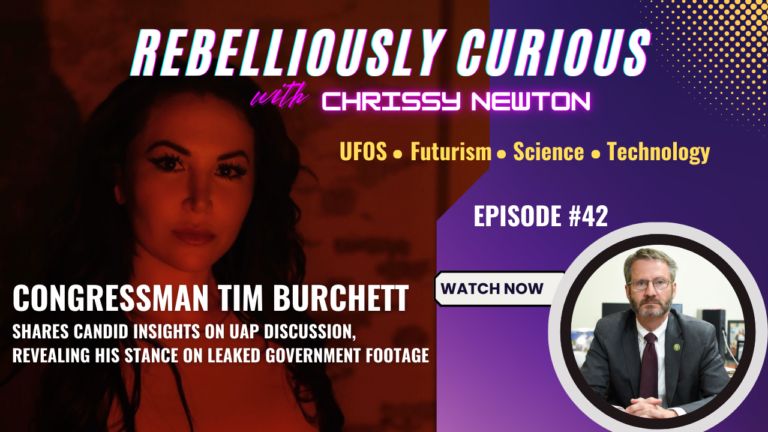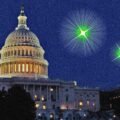In the latest episode of Rebelliously Curious, The Debrief’s Chrissy Newton sits down with U.S. Representative Tim Burchett from Tennessee’s 2nd district to discuss UAPs, current and future efforts by Congress to investigate the phenomena, whistleblowers, and a whole host of other issues related to those topics.
At the beginning of the interview, Burchett tells Newton about how a chance encounter with a reporter led him to become vocal about the UAP topic. Regardless of how you feel about Burchett and his politics, it’s a fun story and a strong piece of evidence in the representative’s favor to support his often-claimed desire to shed light on uncomfortable truths about the people inside the government.
Throughout the discussion, Newton repeatedly presses the congressman about fears that the UAP issue may become a partisan issue, something that seemingly happens to every topic in Congress sooner or later. Burchett consistently pushed back on this notion, telling Chrissy that he sees no signs of this issue becoming the domain of one party over another. He admits that most of his time is spent with people from his own Republican party but says he spends ample enough time with people in both parties to feel confident that the UAP issue is neither a Democrat nor a Republican one. Burchett notes with some obvious dismay that only a handful of the representatives and staffers that he interacts with even discuss the issue at all, and rather than partisanship, voters who want Congress to act on UAPs should focus their efforts on pressuring representatives and senators from across the board.
In what is probably the most explosive part of the interview, Burchett relays a story about a military aviator (maybe more) who told the congressman that he had destroyed video and/or sensor data of UAPs even before he landed his aircraft to avoid having to discuss the issue and potentially lose his flight status. Very little detail is given of this encounter, but is definitely something future interviewers will undoubtedly ask the congressman about.
Burchett also discusses some of the people involved with efforts to reveal what the U.S. government may or may not really know about the nature and origin of UAPs, even mentioning that he has become close friends with former Pentagon staffer and UAP lighting rod Lue Elizondo. In fact, the representative tells Newton that he was just on the phone with Elizondo that same morning.
At one point. Newton asks Burchett about the possibility of UAP crash retrievals, specifically the idea that the U.S. government or one of its military contractors actually has debris or even craft in its possession. This is one of the stronger segments of the interview, and like much of the material before and after this segment, the representative laments the corruption he sees all around him and how that has kept the truth from coming out. For example, Burchett believes that the use of “honeypots,” a cold war era term for spies using sex to corrupt and control sources, is alive and well and may be contributing to the ongoing silence around UAPs and crash retrievals.
Burchett also says that supposed “whistleblower” protections added to the UAP portion of the 2022 NDAA don’t go far enough to protect those who want to speak about their experience working on or around “non-human made” craft. In fact, he tells Newton more than once that he believes the truth about crash retrievals and reverse engineering programs will likely never be revealed by government insiders and that a whistleblower may be the only true path toward some type of meaningful disclosure. This leads to a tense discussion between Newton and Burchett about the idea of people violating their oaths to blow the whistle on UAPs and is a segment definitely not to be missed.
All in all, people who are interested in the UAP topic and the efforts by certain members of the U.S. Congress to investigate the issue will find the interview interesting and informative. As always, Newton’s smooth style and insightful inquiry keep her interview subject on his toes and sometimes scrambling for answers. Still, Burchett does his best to keep up and stays consistent in his view that UAPs are a legitimate area of inquiry for the U.S. Congress and that the thing that could derail the effort is good old-fashioned corruption.
As previously noted, whatever your political leanings, this is an interview that moves at a crisp pace and is 100% worth watching from beginning to end. So, go get Rebelliously Curious, and watch Chrissy Newton with Tim Burchett!
Christopher Plain is the Head Science Writer at The Debrief as well as a Science Fiction and Fantasy novelist. Follow and connect with him on Twitter, learn about his books at plainfiction.com, or email him directly at christopher@thedebrief.org.

